Healthcare Across Race and Ethnicity

Multicultural Americans have unique perspectives, needs, and experiences related to health care that brands must understand. Keep reading for key insights that will help your brand or organization better understand and connect with these segments.
A rapidly growing multicultural population and the emerging consumer mindset are changing consumer demands on healthcare. To win in this constantly evolving space, brands and organizations need to understand multicultural Americans’ unique health-related perspectives, needs, and experiences and how these impact their engagement with health insurers and providers.
Fill out the form for a few key insights and implications.
Collage Group’s 2021/2022 Health & Wellness Study leverages data captured from more than 3,500 Americans to help brands understand how health-related attitudes and behaviors differ by racial and ethnic segments. Our research reveals how the emerging consumer mindset affects Americans in both the health insurance and health care provider space. We explore barriers to insurance coverage, drivers of and barriers to trust and satisfaction, provider preferences, willingness to follow provider advice, and more.
Here are a few key insights and implications:
#1. There is room for growth in overall satisfaction with medical care across all multicultural segments and age groups. To improve satisfaction, focus on building trust and humanizing the health care experience.
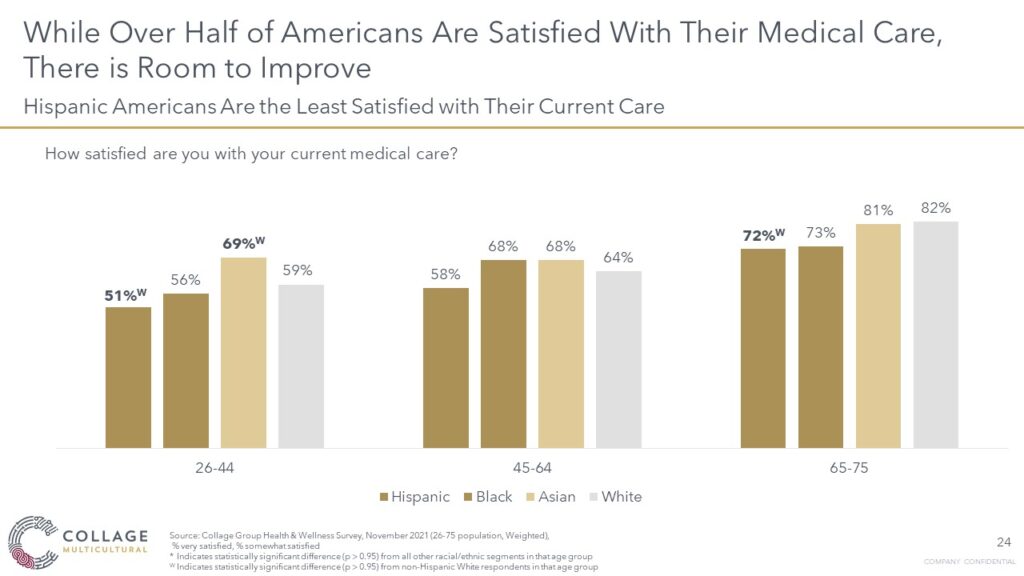
Pfizer’s ad (shown below) seeks to gain trust with Black Americans by first acknowledging that the segment’s distrust in the health care system is understandable given the discrimination and injustice they have experienced. The spot then notes that this lack of participation means Black Americans may not be getting the best care they could, and that greater representation in research will ultimately lead to better care. It ends with a call to action to have more Black Americans participate in clinical trials.
#2: Multicultural consumers want doctors who take the time to understand their cultural backgrounds. Prioritize culturally competent care through services in multiple languages, training on different cultural norms and preferences, and ensuring there is staff who look like them.
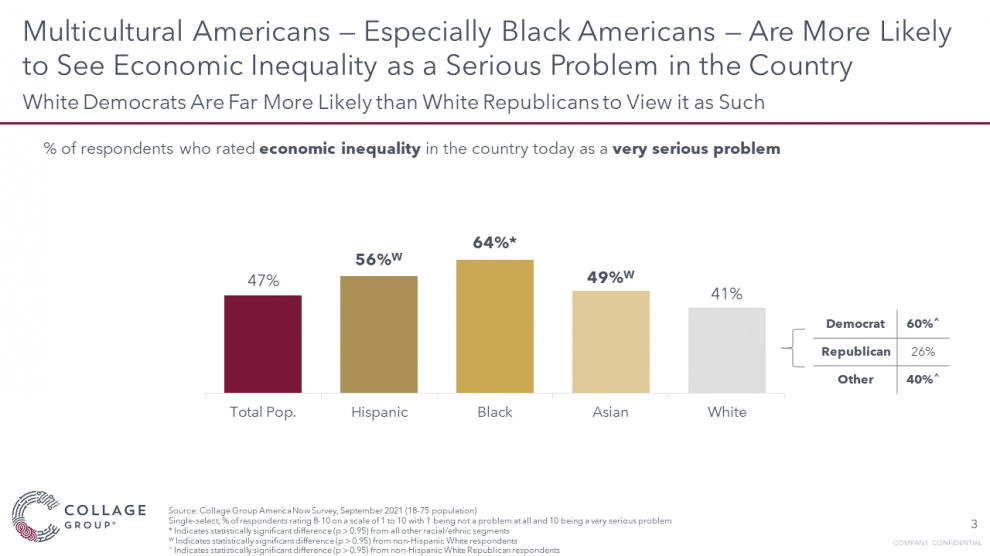
Kaiser Permanente has made a name for itself as a leader in culturally competent care. Marketing messaging highlights the translation services the system offers in over 100 languages, the fact that over 60% of their staff are multicultural, and the training staff receive on culturally appropriate etiquette and care.
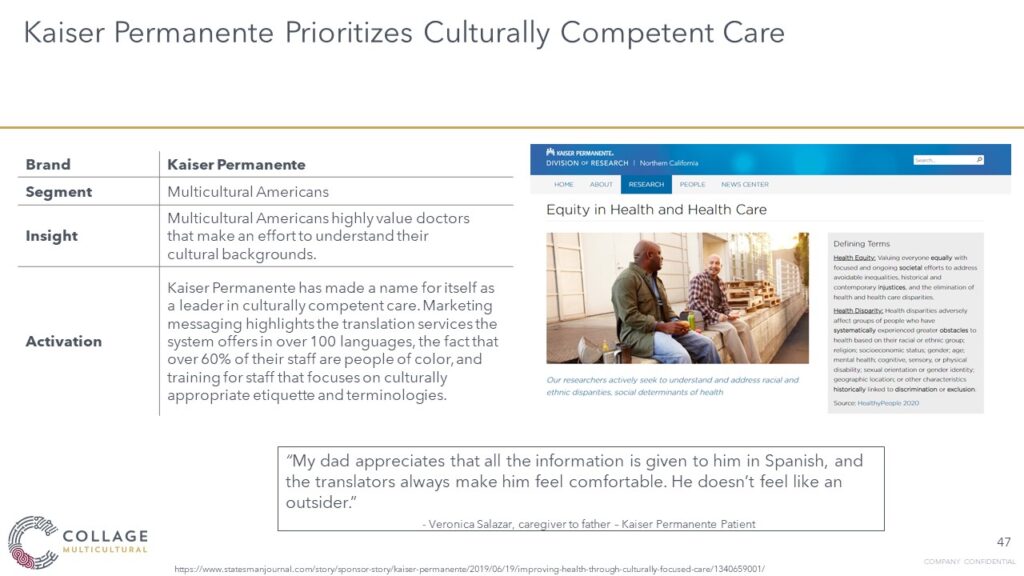
#3: Family is important to Multicultural consumers during their health care journey, especially Hispanic Americans. Make sure that the health care process is focused on both the patient themselves and the family members.
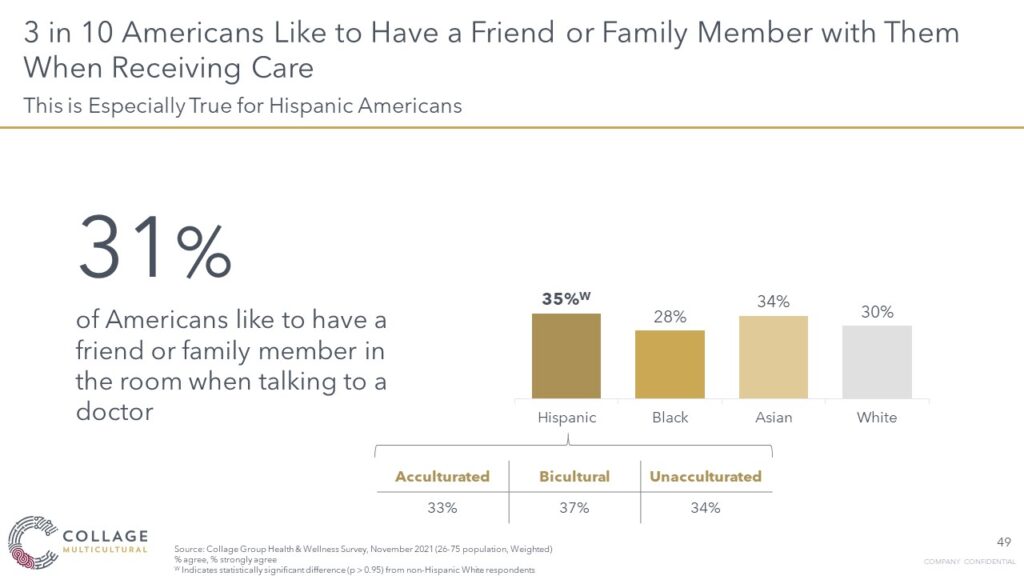
Marketers should highlight the ways their organizations support family engagement. Below are several things that can signal your organization is family-friendly and keen to provide support beyond the patient.
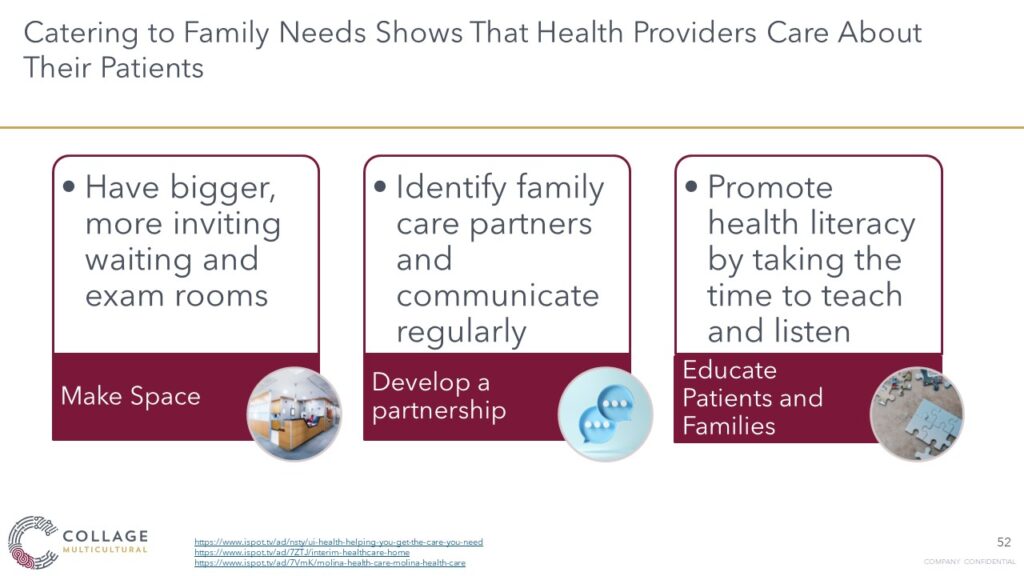
Contact us to learn more about how you can gain access to diverse consumer insights in our Cultural Intelligence Engine.
